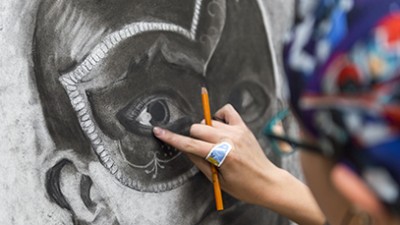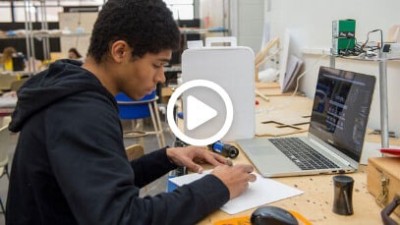
Don Casper
Professor of Practice
Don Casper
Professor of Practice
Bio
Don Casper is a five-time New York Emmy® award-winning filmmaker and the owner of EPIC10 Films. With extensive experience as a director, editor, colorist, and producer, he has crafted hundreds of corporate videos and TV commercials, alongside numerous independent films. His passion lies in independent projects that highlight trailblazing individuals embodying compassion and inclusion.
Casper served as the editor for The Last Dalai Lama?, a feature documentary directed by Mickey Lemle, which was released theatrically across North America in 2017. He created, produced, and directed the award-winning feature documentary Signs of the Time, which explores the connection between baseball hand signals and deaf culture. Narrated by Richard Dreyfuss, this film was featured in The New York Times and aired internationally, earning the NY Emmy® Award for Outstanding Documentary.
His accolades also include NY Emmy® awards for co-producing Turn The Page (2019) and directing Don’t Define Me (2020). He co-produced and edited Women and the Vote, directed by Linda Moroney, which won the 2022 NY Emmy® in Documentary Topical.
Most recently, he directed Appalachia Heart, a film following visual artist Charmaine Wheatley as she paints portraits of individuals affected by the opioid crisis in rural Eastern Kentucky. The film premiered nationwide on public television and received the 2024 NY Emmy® for Best Human Interest Program.
In addition to his filmmaking, Don is currently working on an MFA degree in photography using alternative motion picture capture and display processes that reflect on legacy, impermanence and the transition of how society consumes media.
Currently Teaching
In the News
-
January 4, 2024
![Seth Meyers reads a book for the Storyline Online series.]()
RIT filmmaking team brings children's stories to life with Emmy-nominated series
Amy Adrion, assistant professor in the School of Film and Animation, has directed and produced seven episodes of children's literacy series Storyline Online with the help of fellow faculty, students and alumni.
-
April 29, 2022
![three people making the American Sign Language sign for cheese.]()
Pioneering RIT and NTID collaboration garners the Coca-Cola Refreshing Films Grand Prize
Say Cheese, a pioneering, heartfelt film directed and produced by two RIT students, took home the top prize in the Coca-Cola Refreshing Films program announced during the final night of CinemaCon in Las Vegas late Thursday. The project featured the combined creative efforts of students, faculty, and staff in RIT’s School of Film and Animation and NTID.
-
March 15, 2022
![Gabriel Ponte-Fleary, Anna McClanahan and Shanti Thakur on set for Say Cheese.]()
RIT, NTID make history with Coca-Cola-sponsored film
Film and Animation students Anna McClanahan (BFA) and Gabriel Ponte-Fleary (MFA) are finalists in Coca-Cola's Refreshing Films program. They are producing what is thought to be the program's first finalist film dealing with deaf and hard-of-hearing themes.
-
April 25, 2020
Casper receives New York Emmy Award







